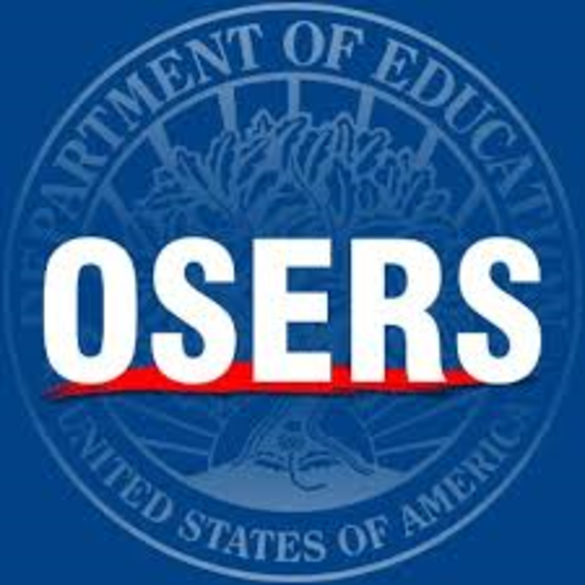
For Immediate Release From OSERS!
Applications for New Awards; Technical Assistance and Dissemination To Improve Services and Results for Children With Disabilities-Model Demonstration Projects to Develop Equitable Family Engagement With Underserved Families of Children With Disabilities
AGENCY:
Office of Special Education and Rehabilitative Services, Department of Education.
ACTION:
Notice.
SUMMARY:
The Department of Education (Department) is issuing a notice inviting applications for new awards for fiscal year (FY) 2024 for Model Demonstration Projects to Develop Equitable Family Engagement with Underserved Families
of Children with Disabilities, Assistance Listing Number 84.326M. This notice relates to the approved information collection under OMB control number 1820–0028.
DATES:
Applications Available:
February 14, 2024.
Deadline for Transmittal of Applications:
April 24, 2024.
Deadline for Intergovernmental Review:
June 24, 2024.
ADDRESSES:
For the addresses for obtaining and submitting an application, please refer to our Common Instructions for Applicants to Department of Education Discretionary Grant Programs, published in the
Federal Register
on December 7, 2022 (87 FR 75045), and available at
www.federalregister.gov/d/2022-26554. FOR FURTHER INFORMATION CONTACT:
Carmen Sanchez, U.S. Department of Education, 400 Maryland Avenue SW, Room 4A10, Washington, DC 20202. Telephone: (202) 987–0117. Email:
carmen.sanchez@ed.gov.
If you are deaf, hard of hearing, or have a speech disability and wish to access telecommunications relay services, please dial 7–1–1.
SUPPLEMENTARY INFORMATION:
Full Text of Announcement
I. Funding Opportunity Description
Purpose of Program:
The purpose of the Technical Assistance and Dissemination to Improve Services and Results for Children with Disabilities program is to promote academic achievement and to improve results for children with disabilities by providing technical assistance (TA), supporting model demonstration projects, disseminating useful information, and implementing activities that are supported by scientifically based research.
Priorities:
This competition includes one absolute priority and, within that absolute priority, one competitive preference priority. In accordance with 34 CFR 75.105(b)(2)(v), the absolute priority is from allowable activities specified in or otherwise authorized in sections 663 and 681(d) of the Individuals with Disabilities Education Act (IDEA) (20 U.S.C. 1463 and 1481(d)).
Absolute Priority:
For FY 2024 and any subsequent year in which we make awards from the list of unfunded applications from this competition, this priority is an absolute priority. Under 34 CFR 75.105(c)(3), we consider only applications that meet this priority.
This priority is:
Model Demonstration Projects to Develop Equitable Family Engagement with Underserved Families of Children with Disabilities.
Background
Model demonstrations to improve early intervention, educational, or transitional results for children with disabilities and their families have been authorized under the IDEA since the law's inception. For the purposes of this priority, a model is a set of existing evidence-based practices, including interventions and implementation strategies (i.e.),
core model components), that research suggests will improve outcomes for children, families, personnel, administrators, or systems, when implemented with fidelity. Model demonstrations involve investigating the degree to which a given model can be implemented and sustained in real-world settings, by staff employed in those settings, while achieving outcomes similar to those attained under research conditions.
The work of the proposed models is consistent with the Secretary's Supplemental Priorities, published in the Federal Register.
on December 10, 2021 (86 FR 70612), as well as “Raise the Bar: Lead the World”,[1]
through its focus on promoting equity in student access to educational resources and opportunities; meeting student social, emotional, and academic needs; and strengthening cross-agency coordination and community engagement to advance systemic change. Proposed models may also address a competitive preference priority that builds on the absolute priority by being responsive to the focus in the First Lady's Joining Forces initiative [2] whose mission is to support military families, including families of service members and veterans, caregivers, and survivors. The initiative includes a focus on military child education, and specifically advancing programming to support military-connected children in their classrooms and help ease the burdens created by the highly mobile military lifestyle. For military-connected children with disabilities this includes simplifying and streamlining the onboarding process into a new school system, facilitating the transfer of individualized education programs (IEPs) from students' previous schools into their new schools, and providing required services to children and families without disruptions in educational programming when there is a change in duty station. This focus is aligned with the Department's focus on supporting military-connected and other highly mobile children with disabilities outlined in a February 2022.
Letter to State Directors of Special Education on Ensuring a High-Quality Education for Highly Mobile Children, which provided resources and guidance for States, school districts, school staff, parents, families, and others on ensuring that highly mobile children with disabilities receive required special education and related services designed to meet their unique needs in a timely manner.[3]
Decades of research have shown the positive relationship between family engagement and improved outcomes for children (Fan & Chen, 2001; Henderson & Mapp, 2002; Hill & Tyson, 2009; Jeynes, 2005, 2007, 2012; Kim & Hill, 2015). The growing evidence base indicates that children with disabilities benefit when their families are systemically engaged in their education in ways that are responsive to the families' strengths, needs, cultures, and experiences. While not independently explored in the research, it stands to reason that systematic and responsive family engagement is particularly important when supporting military families with their unique strengths, needs, cultures, and experiences.
IDEA, through its emphasis on empowering parents to understand their rights and responsibilities under the law and by placing families at the center of the individualized education program process, has emphasized the importance of engaging families of children with disabilities. Furthermore, IDEA places families as vital partners with schools, districts, and States in creating systemic change through the development and implementation of comprehensive strategies to improve outcomes for children with disabilities (section 650(2) of IDEA; 20 U.S.C. 1450(c)).
Schools often have difficulty effectively supporting family engagement practices and instead focus on narrow ideas of family participation (e.g.), participating in back-to-school nights or parent teacher organization fundraisers) that disengage many families, and particularly disempower and exclude underserved families of children with disabilities (Baquedano-Lopez et al., 2013; Doucet, 2011; Dyrness, 2009; Lareau & Horvat, 1999; Olivos, 2006; Xu, 2020). Family disempowerment and inequity, created when schools do not account for the lived realities of underserved families.
within their communities, mirrors the deep educational inequities in their children's experiences, (Buren et al., 2020) and can increase the disproportionate representation of underserved children in some disability categories, disproportionate discipline, and placement in more restrictive and segregated settings (Kramarczuk Voulgarides et al., 2017).
To support the engagement of underserved families, research points to the need to create ongoing, dynamic, and equitable collaborations that reorganize power structures, develop sustainable relationships (Ishimaru, 2020), and are culturally and linguistically responsive and trauma informed. Equitable collaborations between schools, underserved families, and their communities show promise in creating sustainable structural changes that improve educational outcomes for underserved children, including children with disabilities (Ishimaru, 2020).
To improve outcomes for children with disabilities, including military-connected children with disabilities, the Department is funding school-based models of equitable family engagement that systemically involve underserved families of children with disabilities as partners and leaders in creating more equitable and inclusive schools that are responsive to the families' priorities, strengths, and needs.
Priority
The purpose of this priority is to fund four cooperative agreements to establish and operate evidence-based [4] model demonstration projects. The models must implement sustainable, schoolwide policies, practices, and strategies that systemically engage underserved families [5] of children with disabilities as partners and leaders in creating more equitable and inclusive schools that lead to improved outcomes for children with disabilities.
The models must address the infrastructure (e.g.), implementation teams, data systems) and ongoing supports needed to foster the development, implementation, and evaluation of sustainable, schoolwide family engagement [6] policies, practices, and strategies that systemically involve underserved families,
Read the full Grant Application Guidance HERE!:
https://www.federalregister.gov/documents/... Follow on Twitter HERE!:
https://twitter.com/search?q=%23OSERSGrant...
 Posted By: agnes levine
Posted By: agnes levine
Friday, April 19th 2024 at 11:42AM
You can also
click
here to view all posts by this author...